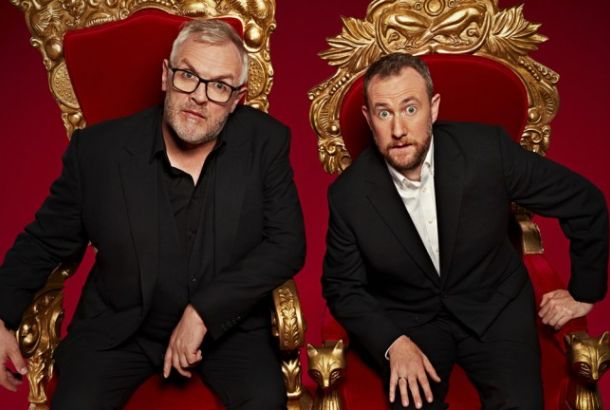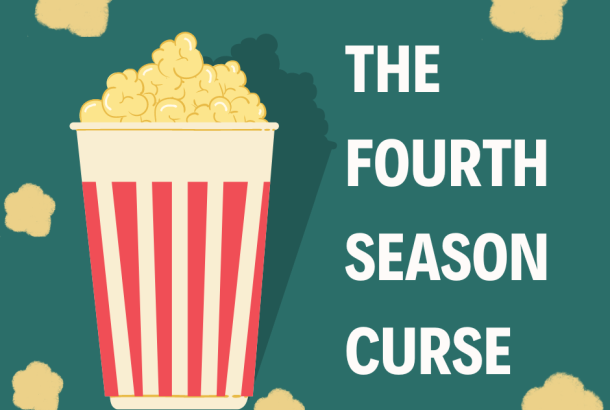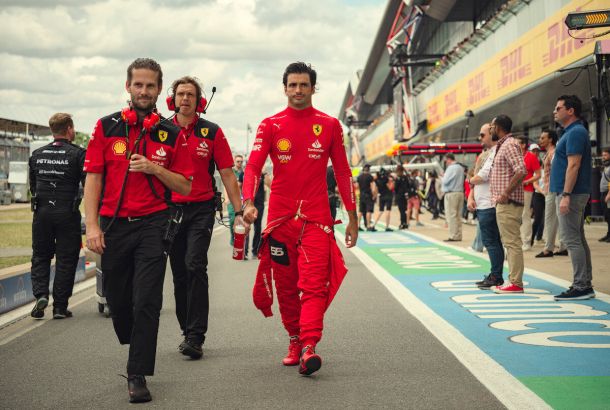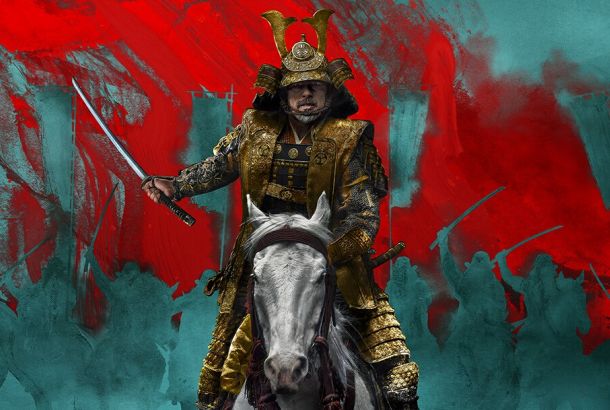Better Call Saul Season 6a: what’s happened so far?
By Joe McFadden and Archie Earle
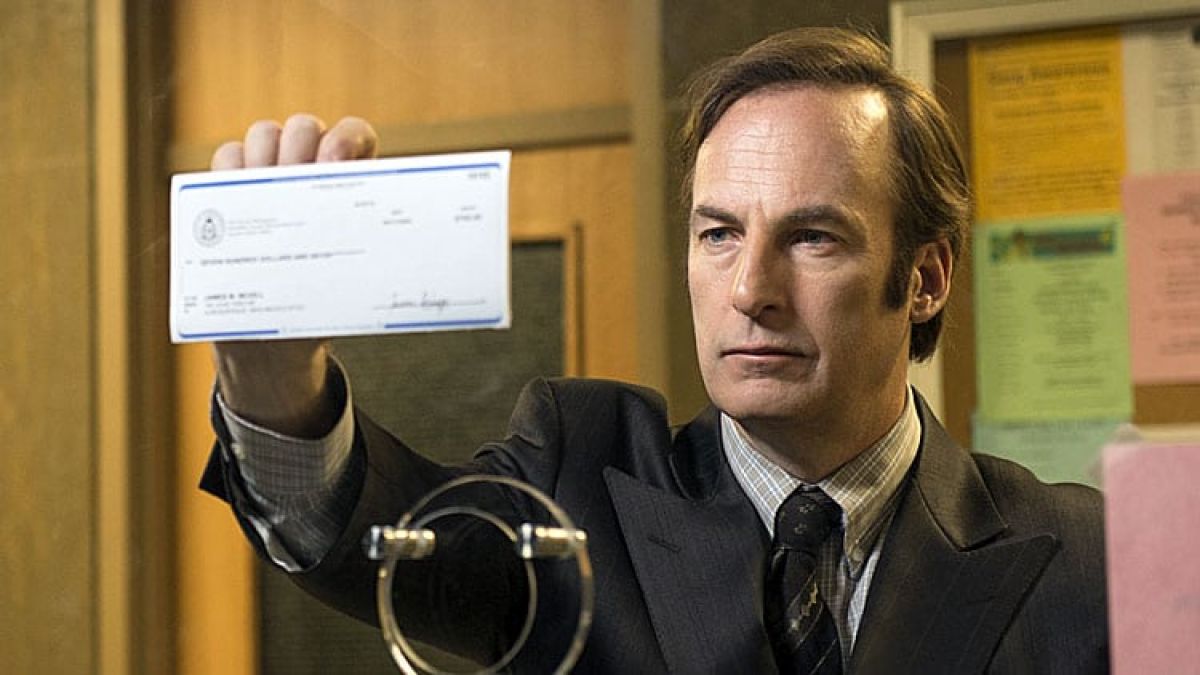
Let’s talk about that mid-season finale.
Archie:
Wow. I don’t know many people who won’t have their jaw on the floor after that. Howard’s dead and who knows what the repercussions of that will be, but, we are now seeing the transition of Better Call Saul (BCS) to Breaking Bad (BB) and what happened to Howard will surely be a large element of the transition. The intricate weaving of what had seemed like two distinctly different parts of Jimmy’s life: the cartel and Hamlin Hamlin McGill (HHM) was stunning. As much as we like Jimmy and root for him in a way, Howard was so often the good guy, it’s almost sad to see him go. It’s also probably the most direct blood on Jimmy’s hands there has ever been.
Joe:
Those final 10 minutes of the episode were truly some of the best television I’ve seen in a long long time – hats off to Thomas Schnauz (Executive Producer and writer-director of ‘Plan and Execution’), this episode was a thrill from start to finish. Circling back to Howard’s death it was sad to see him go but What. A. Death. Patrick Fabian truly shined this episode as well, his final monologue before Lalo pointed and shot was some of his finest work on the show and I hope we see him get a much-deserved Emmy nod next week. Lalo’s entrance was also perfectly executed (pun intended) – the abject looks of horror on Kim and Jimmy’s faces as they saw him emerge from the shadows definitely reflected the audience’s shock at Howard’s demise. I agree it’s sad to see Howard go but his death has really blown open the potential for the rest of the season so I’m excited to see what happens next!
Let’s talk about this season’s other big death – Nacho Varga went out in a cathartic, tragic moment but what does this mean for Mike, seeming as we saw how he was fond of Ignacio?
Archie:
Mike was a bigger part of BB than Jimmy [Saul] and we get to see more of his development during the series. His main battle has been between his relationship with ‘the job’ (something he always insists he has no emotional connection to) and the actual people involved. We saw this in season 4 with Werner Ziegler and being forced to kill him, with Mike falling into a depression as a result. He recovered from that only to see the same thing with Nacho Vargo in the first half of this season. Perhaps due to Nacho’s acceptance of the situation or Mike’s control, we haven’t seen the same level of reaction. Yet, in BB we see an equally cold and clinical Mike, so maybe Ziegler was the final straw which enabled Mike to actually distance himself from his work.
Joe:
Nacho’s death was an unfortunate inevitability of the show. We all wanted him to skip town, get the hell outta dodge, and live out his days far away from the Cartel (not unlike Jesse Pinkman in El Camino) but it was clear from the outset of this season that Nacho had to die. I think for Mike’s character arc I agree in the sense that it’s just another way he’s losing his humanity. Mike in BB is a character who, whilst we still like his noble outlook on life, is a very different man to his BCS days so I think we’ve really got one more possible event left that will complete his transition into the cold killer who butts heads with an ego-fuelled Walter White.
Let’s jump back to Howard and why Jimmy and Kim planned this elaborate scheme. It’s interesting to note Jimmy’s seeming reluctance vs Kim’s desire to pull off the con so how did this reflect on their character growth so far and what might they have in stall for us?
Archie:
Saul and Kim’s relationship is toxic, to say the least. For Jimmy, much of it has relied on his own deception about his law practice and the sticky bleeding of this into his work for the cartel. This came to its climax during the yellow coffee cup incident. This of course blew up in Jimmy’s face and the realisation came that Kim would never be able to trust Jimmy. But she stayed with him. Given all that we know about Kim and how morally sound she tends to be, her acceptance of Jimmy’s plunge into the criminal underworld seems to be her hamartia. However, this is carefully balanced with why Kim loves Jimmy: he’s fun and in the world of stuffy suit-clad lawyers, he doesn’t take himself, or much at all, too seriously. The recent penultimate episode of the series would show that Kim even takes the idea of revenge on Howard way past, and how much Jimmy wants to indulge it. Jimmy is in many ways Kim’s respite from the real world, her escape. This generally plays into Kim’s relationship with Jimmy that she loves to join in with his schemes when they seem almost harmless and grounded in justice. But as we know from the last scene, this prank got out of hand and a man has died because of it. Surely this will be one step too far for Kim.
Joe:
I agree, I think it’s interesting how Kim seems to be the one pushing for this scheme, almost living in a fantasy world where she can indulge her impulses seemingly free from consequence although, as the mid-season finale made clear, these things very much have consequences. Jimmy’s reluctant participation in the scheme, however, is interesting. It’s clear Jimmy still has some sort of PTSD from his ordeal in Season 5 Episode’s 8 and 9, ‘Bagman’ and ‘Bad Choice Road’ respectively, so I believe his reluctance is a by-product of his time in the desert with Mike when he had to drink his own urine and then had a terrifying conversation with Lalo afterwards. This season Jimmy has seemed more and more like a shell of a man, and it is only when he puts on the Saul Goodman persona that he becomes alive. Thus, it’s clear Jimmy is increasingly using Saul as an escape from Jimmy’s trauma to allow himself to function properly, which creates a very interesting idea when tied into Jimmy’s seeming reluctance to go along with the scheme but when he’s Saul Goodman in actually carrying out the plan he becomes alive.
Gus versus Lalo – what’s going on with the cartel and the super lab?
Archie:
Gus emanates control from when we first meet him in BB. It ramps up during BB and this idea bleeds into BCS. He is smooth, calculated, and always seems to be one step ahead of Walt and Jesse in the early days of BB and, as we know, this fades away towards the end of the series. In BCS, it’s the reverse, we see him have almost no power and the cartel in Mexico kills off his close friend and ally. However, through the growth of the Pollos empire, Gus’ standing in the community and handle on distribution saw him have a firm grip on the meth empire. But Lalo Salamanca provides a completely new challenge. With the assumption he’s dead Gus would appear to have complete over distribution ‘North of the border’.
Joe:
The role reversal between Gus and the Salamanca’s is one of the most interesting dynamics in the show because we see Fring on the defensive, terrified that Lalo will reveal up his plans for the underground super lab we see in BB to Don Eladio, Juan Bolsa, and the rest of the cartel. Whatever Lalo’s endgame is (see the next section), his character represents the biggest threat Gus Fring has ever faced up until a chemistry teacher walks into his restaurant. It certainly helps that Tony Dalton is so charismatic as Lalo Salamanca that he may even have some audience members rooting for Lalo’s success, despite us knowing Lalo has to lose for the events of Breaking Bad to take place.
How about the cinematography of this season? What have been some highlights so far?
Archie:
The use of the candle in that final scene was one of the simplest yet expertly placed uses of cinematography I have ever seen from a TV show. Especially as the pacing of the episode is so fast, it slows us down, challenging us to notice subtlety. The series has at all times embraced the limits of cinematography, taking what BB did to another level, evident in the show’s brilliantly crafted cold opens. This gives an overwhelming identity to the show. Not that the show particularly needs it, but it elevates what the show does, and it has always been interesting to what they mean and where they will go.
Joe:
The cinematography and production design of both Breaking Bad and Better Call Saul has always been incredible. Somehow, this final season has already stepped up its game though with beautiful shots that evoke tragic symbolism and dramatic irony. I think a special mention must go to Rhea Seehorn for her turn behind the camera in S6 E4 ‘Hit and Run’ but my personal favourite episode(in terms of cinematography) has been episode 3, ‘Rock and Hard Place’. From the cold open to Nacho’s escape through Salamanca territory to his suicide at the episode’s climax, writer-director Gordon Smith did a fantastic job in foreshadowing Nacho’s inevitable death but ensuring he went out not just with a bang, but in a hauntigly-beautiful location that best encapsulates a key theme of the Heisenberg-verse: man’s struggle with his own nature. In his final moments, not unlike Walter White, Nacho truly decides who he is and embraces his own nature as a doomed man thus, upon his death, the natural world embraces his body as we see his corpse filmed at ground level, showing how his nature has been realised in his final moments.
We talk a lot about the idea of Peak TV and how Better Call Saul fits in with not only its parent show but the wider TV landscape in general. Is it really the best thing on TV and has it superseded Breaking Bad?
Archie:
Better Call Saul can firmly say it has achieved something that no other show has ever achieved: the spin-off was better than the original. This is not to denigrate Breaking Bad in any way, it’s culturally and artistically superb, but it is a testament to the heights of Better Call Saul. There is an argument to be had that in The Wire and The Sopranos, TV drama peaked. Other series have arguably come close in Mad Men, Game of Thrones, Breaking Bad and some notable others, but look through any ranking of series and those two will undoubtedly come up within the top 3 if not 5, every time. In terms of storytelling, those shows were on par with some of the best movies ever created. Saul fits into this category. It firmly sits in there with the best ever. Whilst it won’t get even half the recognition that Breaking Bad does, it deserves almost double. But the question looms as to: have we hit peak TV? Of course character analysis shows hit our screens frequently, but hardly to the level of Better Call Saul. I can’t look into the future and predict nothing else will come along, but it’s becoming few and far between as to what hits the heights in TV. Shows like Stranger Things, whilst culturally significant and immensely entertaining don’t hit the soul in the same way something like Better Call Saul does. They manifest into fairly surface-level characters with incredible effects and wonderful CGI but don’t throw you into complex people that can change your view on the world itself. But what we need in the zeitgeist is characters like Jimmy McGill. It is the deep meaningful analysis of individuals which makes you question your own character and that is something that TV can bring us. These characters that you travel with for years at a time have a way of burrowing themselves into your life, in a way that film, literature, theatre and other brands of storytelling just can’t. We need the Saul’s of the world in our life, and perhaps their supply is running short. Maybe Saul will indeed be the last of the antihero drama.
Joe:
If Breaking Bad arguably killed off the antihero drama then Better Call Saul is its ghost haunting the TV landscape. I agree with the notion that Saul has eclipsed its predecessor. With Better Call Saul, Vince Gilligan & Co have managed to surpass the past two decades worth of television in crafting a drama so engrossing and tragic that it puts to shame all that has come before it and all that will come after it. Peak TV has been around for just over 2 decades now and, as streaming fragments the quality and increases the quantity of TV to watch, Better Call Saul is almost a relic of a bygone age in that respect. The slow burn quality of the show has allowed it to build on itself, becoming true watercooler television as fans speculate week-in-week-out as to what might happen next. In a time when we’re overloaded with choice and seasons being pitched as “an X hour movie”, Better Call Saul is a welcome break from the onslaught of cheap Netflix shows that never make it past their second season and Marvel’s Disney+ shows which seem afraid to call themselves TV. Shows like The Wire and The Sopranos are easily some of the best TV ever and I think it’s safe to say Better Call Saul will soon be joining the upper echelons of the TV Hall of Fame as its a compelling character drama first, and a piece of entertainment second.
Click here to read Joe and Archie’s second article, speculating as to what might happen in the final season’s second half.
